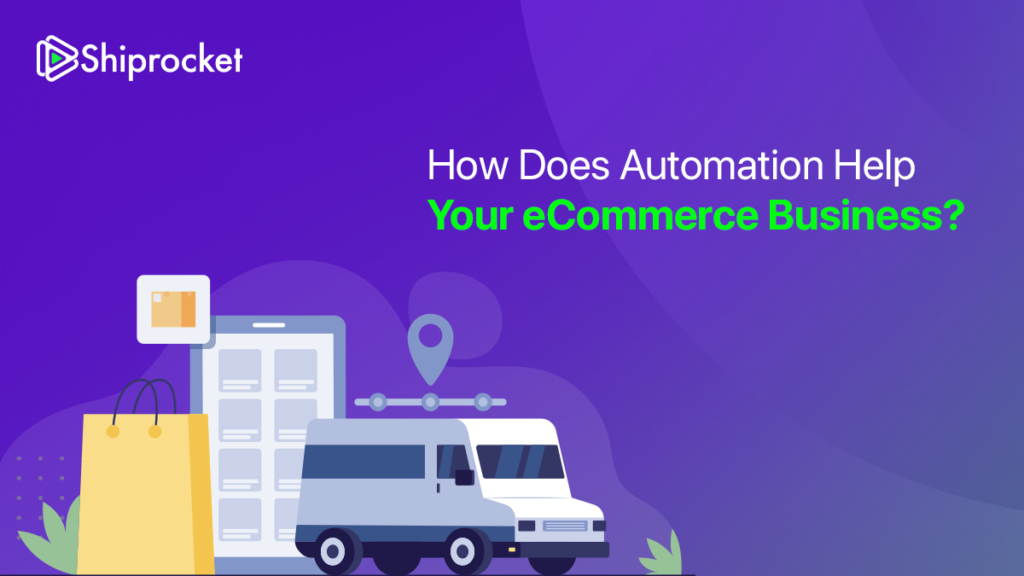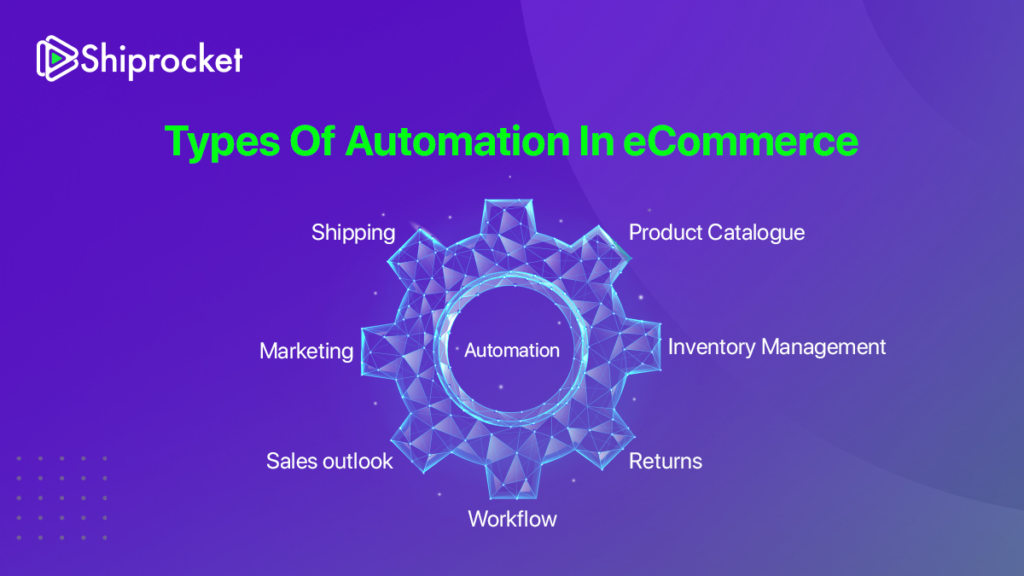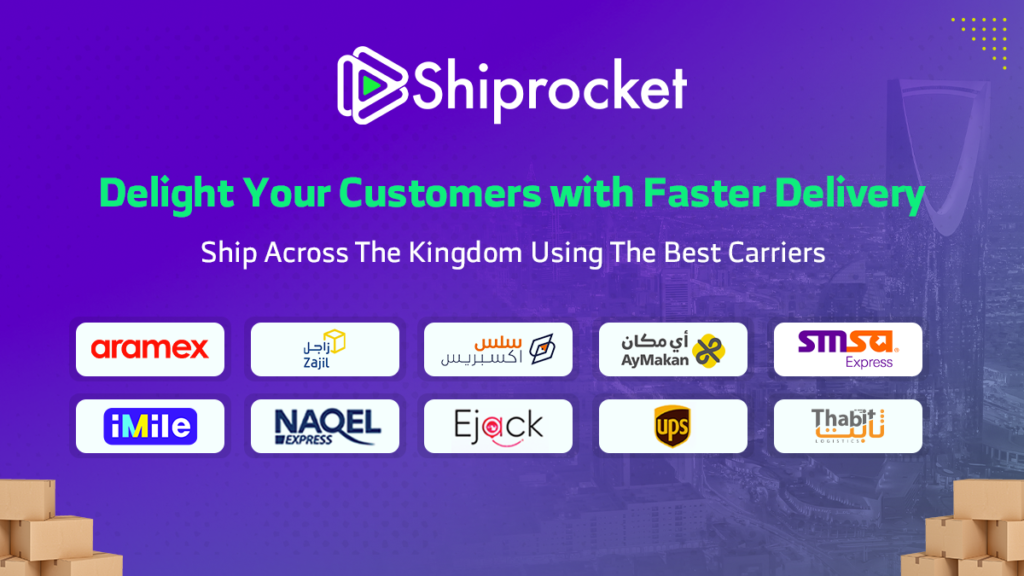eCommerce eCommerce 7 min read
How Does Automation Help Your E-Commerce Business?
🕒 July 8, 2022 by Reham Omar - 7 min read
The term automation describes the method used in creating and using technology to process monotonous tasks with minimal human intervention. An example of Automation in the automobile industry is the use of technology in assembly lines that limits the number of workers needed to build a car or develop a highly advanced robot that can mimic high-level human thought. Automation across industries includes IT automation, business process automation (BPA) or home automation for individual applications.

Importance of Automation
Automating your e-commerce sales process allows you to optimise lead nurturing, streamline sales funnels, and reliably close more deals. The most important benefit of sales automation is that your sales reps have more time to engage with potential prospects and customers, educate them, answer their questions, and solve their problems, which improves their ability to close deals.
Types of Automation in the eCommerce Industry

Product Catalogue Automation
For e-commerce businesses to design a working business model, it would be a logical step to offer these customers their personalised product catalogue according to each customer’s characteristics.
This automation provides each customer with a catalogue of products or services required at the negotiated price stage and service standards. Helps in selling configurable products customized per customer preferences and adds to customer experience.
Inventory Management
To inform customers and your employees about orders and inventory status updates, it is important to integrate numerous systems, such as your ERP, warehouse management system, procurement and others, with your eCommerce and CRM platforms and with different shipping partners.
Inventory automation automatically notifies all participating parties, such as sales representatives and customers, about any developments and the most up-to-date status of their order.
Returns Automation
The returns are disappointing for customers, but it is part of doing business for many companies. As the order is completed, managing returns can be complicated. Different types of services may have different return processes involving multiple parties.
The returns automation notifies the support department, processes returns, updates CRM, inventory or warehouse data, and collects the appropriate amount for the customer.
Workflow Automation
Some eCommerce businesses may allow users to sign up with an email and password, while other companies may have additional requirements. The purchase process may require the approval of different stakeholders at different order stages.
Workflow automation provides a powerful workflow engine that can configure any workflow for vendors and suppliers in commercial operation as it involves input from other decision-makers.

Sales Outlook Automation
Focusing on nurturing opportunities and repeating the policies that work to complete the sales pipeline is necessary. All website components – not just sales reps – need to work together: be it your product pages, landing pages or forms. The data should also flow freely into the system.
Sales automation closely interlinks and synchronises to your CRM, making it easy to close transactions reliably. It generates efficient leads for salespeople from marketing data.
Marketing Automation
Marketing teams develop marketing activities to sell completion. They require accurate data on customer activity and product details to effectively market on multiple channels online and automate repetitive tasks. They can create marketing campaigns that maximise their profits by taking advantage of consumer criteria to improve audience targeting on social media or by using inventory data to better market-specific products.
Marketing automation aids marketers in categorizing customers based on several criteria to personalize ads, products, pricing, and shipping options.
Shipping Automation
An eCommerce Shipping Solution is a software application integrated into the digitised processes of your eCommerce shipping business. Shiprocket, a leading shipping automation software, provides automated and seamless delivery services. In addition, it allows you to access orders, process orders, receive reports and monitor real-time shipping information, and provide affordable service delivery. Automation can automate and help modernize shipping services and related delivery processes that people used to manage manually in the past. In addition, automation software can help track and resolve challenging issues in shipping operations.
Automated shipping means moving to the automation of the commercial shipping process, starting when a new order is placed, which includes selecting items from inventory, packing boxes, and receiving packages in transit for delivery to customers. In the world of perfection, automation gives you speed.
Advantages of Using Automation in Shipping
eCommerce automation integrates and interacts with software, algorithms, and other e-commerce platforms. Automation aims to increase eCommerce sales, improve the customer experience, and make the shipping team more productive.
Shipping automation benefits many areas of business, some of which include:
- Data Care: Data accuracy is a prerequisite for eCommerce operations. Dynamic business often generates various data regarding inventory, customer, order and revenue information. Sharing such data in traditional ways can lead to human errors critical to the whole process in large-scale operations.
- Customer experience: Customers increasingly find experiences that are memorable and easy and help them save time and money. Customers also expect transparency and appreciate being able to quickly find the right products, track their orders, and get up-to-date inventory and fulfilment information. Businesses that make it easier for customers to manage their orders, shipping and returns without employee involvement save money and increase long-term customer loyalty.
Priority focus: Automation frees employees’ time. Otherwise, time spent on futile tasks allows professionals to focus on more creative business processes, such as your expansion and growth strategy. This way, sellers can engage in automation to improve their shipping performance. Professional teams in e-commerce can make constructive use of customer information through market research and enhance decision-making processes to increase their market share.
Shiprocket: The Ultimate Automation Solution
An eCommerce order shipping is a process of getting a product directly from an online retailer to a customer. Although the basic premise of eCommerce order shipping is upfront, many factors create a seamless, effective shipping process and enhance shipping performance. It requires a thorough knowledge of your product and how it will be delivered, such as the team you put together, the workflow you set up, and the expectations you set for your customers.
Shiprocket automates shipping through an even simpler process for an automated online store that integrates many seamless features, including order synchronization and bulk shipping, and enables the shipper to enhance the shipping process.
Key Highlights of Shiprocket Plus
- Automated Shipping Workflows: Reduce workflow manual tasks and improve operational efficiency with bulk order processing, label and manifest generation, non-delivery NDR and RTO return management, and more.
- Seamless Integration: Connect using plug-n-play connectors and manage multiple carriers, e-commerce POS platforms and marketplaces, such as Shopify, Salla, Magento, Amazon, etc.
- Post-Purchase Experience: The branded order tracking interface sends automatic tracking notifications via email, SMS and WA. Grow your brand advocacy, gather customer feedback and NPS, and facilitate returns using branded tracking pages.
Predictive Analytics: Make data-backed decisions to help enhance logistics for your business. Adhere to delivery SLA, track career performance, and avert returns before they occur.
Shipping Workflow Made Easy With Shiprocket
Shiprocket automates your entire eCommerce completion journey through these key steps:
- Connect with Carriers: Upload carrier agreements and create orders using our simple order creation workflow that supports bulk shipping by importing batch orders via CSV files. Upload multiple orders to one file and eliminate manual attempts.
- Integrate eCommerce Store: Connect marketplace accounts and eCommerce sites using our seamless connector and custom API. The system lets you synchronise catalogues and inventory of your Automated Store and monitor orders and real-time delivery status.
- Preferred Carrier Selection: Select the required carrier through Proprietary Carrier Recommendation Engine (CORE), which offers carriers per field coverage, delivery performance, etc.
- Prepare Ship-Ready: Prepare for order pickup by delivery agents suitable from multiple locations without manual effort. The system does quick order processing and automatically generates the required shipping documents, including product invoices, manifests, and shipping labels.
- Inform Customers: Preserve your brand’s customer experience by using SMS notifications with a branded tracking mechanism, customisable emails and order tracking status.
6. Decisions Based on Analysis: Use the advanced shipping analytics dashboard to select the best courier for your shipment based on multiple variables like cost, turn-around, SLA, etc.




